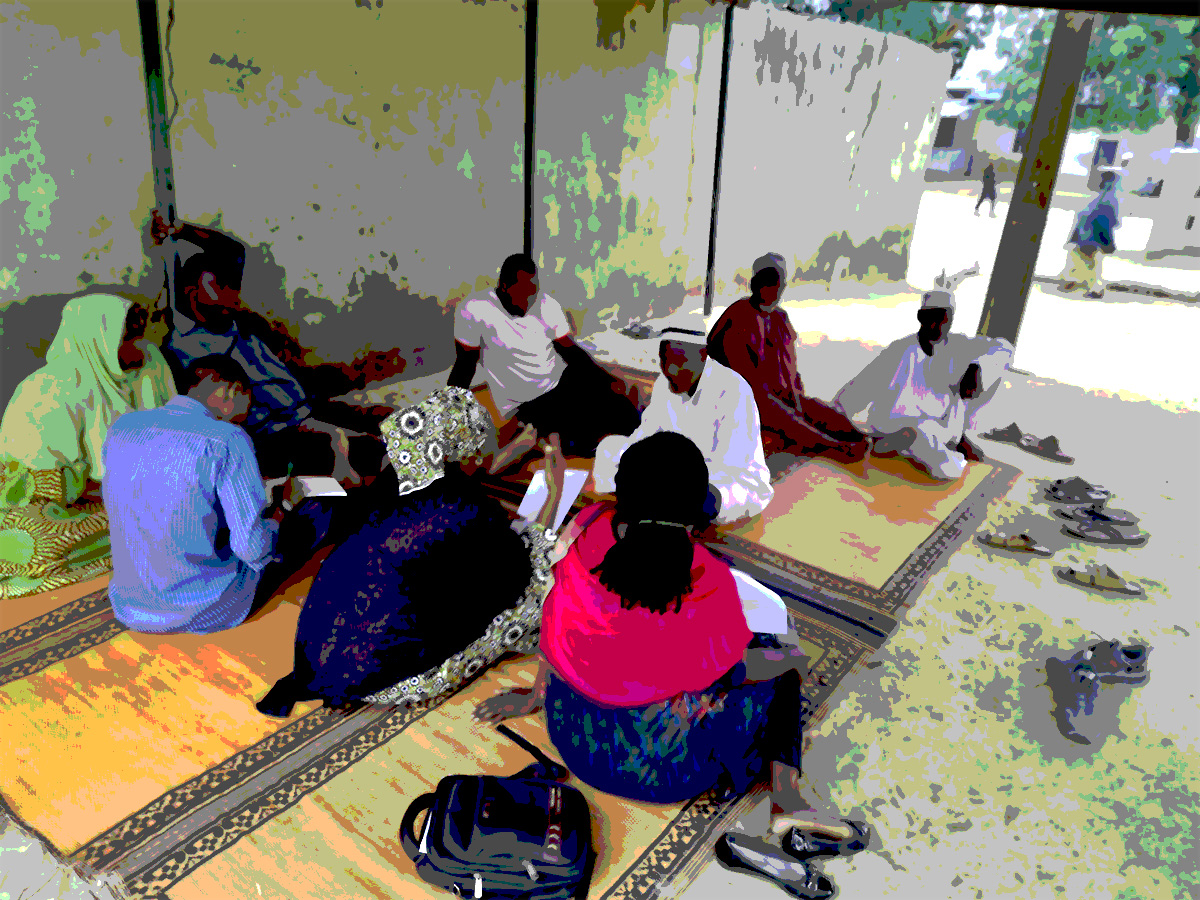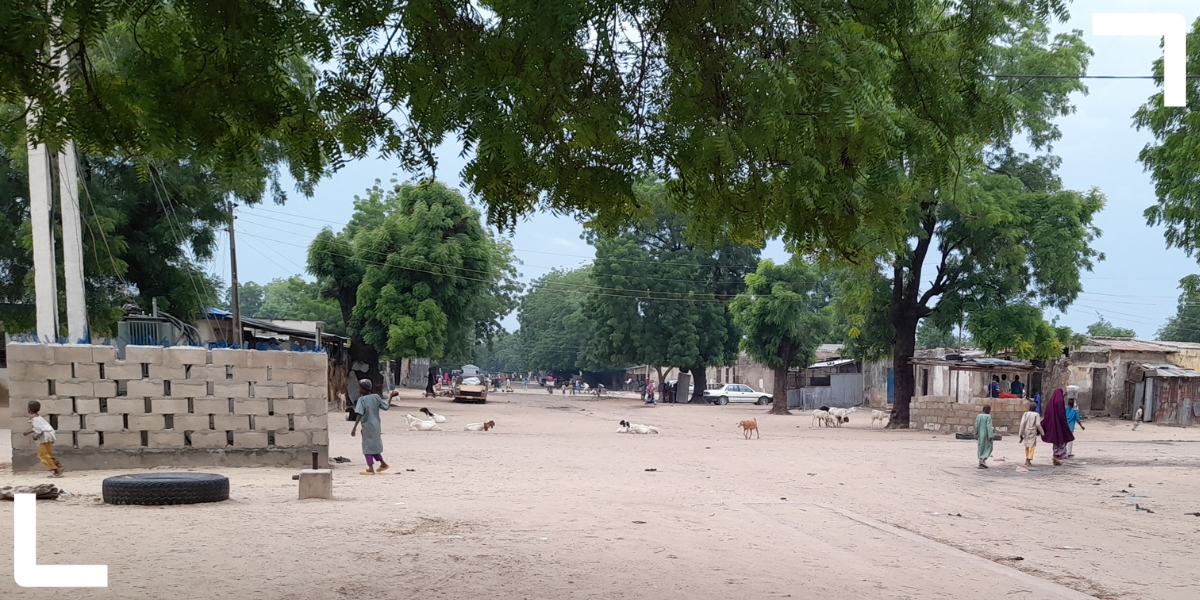By Elizabeth Dessie, Smith Ouma, Patience Adzande, Nicola Banks, Ezana Haddis Weldeghebrael, Joshua Magero, Miriam Maina, Diana Mitlin and Ademola Omoegun
The nuances of working with marginalised individuals and communities are plentiful, with some parallels and many differences cutting across geographies and intersectional realities. This blog post draws on the authors’ experiences of researching disadvantaged people, the strategies devised to address challenges and questions raised through these encounters, and thoughts on how researchers can safeguard against generating and/or reinforcing vulnerabilities during fieldwork and moving forward.
Vulnerability, marginality and reflexivity in research
The complex nature of vulnerability, its diverse ideological constructions, and the gaze that it continues to attract from international development research and policymaking, provide strong grounds for examining harm in the context of research encounters. Research discourses remain haunted by intractable questions around how to recognise vulnerabilities and structure the research process in ways that do not create new vulnerabilities, or compound existing ones.
Silence around vulnerability can deepen marginality. It fails to provide conditions for a proper understanding among researchers of potentially harmful practices and how to respond to them within the research environment. Reflexivity is therefore a necessary precondition to any research exercise and can act to protect research participants from potential harm. This reflexive piece from ACRC’s postdoctoral fellows and researchers draws on our rich experiences and insights from fieldwork encounters across different domains and contexts.
Challenges identified in researching disadvantaged people in Africa
One key challenge raised through conducting research with and on underprivileged communities in African cities relates to the very nature of research itself. By engaging in the collection of data outside of our usual social, economic, classed and geographical remits – and as affiliates of a UK-based research institution that supports and validates our work – we manifest and embody inherently extractive practices and derive ethics from the unequal power dynamic that characterises the researcher–informant relationship. We acknowledge that the marketplace for knowledge is intrinsically imbued with power relations and the enactment of power by different social actors.
When dealing with vulnerable populations, imbalances will often persist in conditions for engagement, which is likely to affect the capacity of certain groups to participate in these processes. Walking this tightrope requires an acknowledgment that those being observed are able to reciprocate the gaze and challenge any flawed epistemological accounts and premises. It then requires a candid conversation with all stakeholders involved in the research process to set the terms of engagement and open channels for feedback.
Another challenge raised related to the problematic nature of remunerating study participants for taking part in our individual studies. Remunerating participants can undermine the voluntary nature of their participation, potentially deflecting their attention from critical deliberations on the issues at hand. It can make participant groups docile and malleable to the whims of the research convenors and can also lead to those more advantageously placed securing participant roles, with others missing out.
However, failure to provide some form of token to research participants is equally problematic, as it assumes that all participants have disposable time to lend to the research activities. It can in turn expand vulnerabilities. While remunerating participants was not an established practice for any of us, we agreed that providing refreshments was a natural part of certain data collection scenarios, such as focus group discussions (FGDs). In such settings, all forms of financial remuneration were deemed best avoided, to circumnavigate tricky territories of study participation becoming casual income-generating activities. The boundaries that we establish with informants can, however, become difficult to maintain when working with individuals who are particularly disenfranchised, including those who are food insecure – we may experience internal conflicts in delineating our roles as researchers and our primary human solidarity.
It is also the possible that some research undertakings may inadvertently contribute to the erasure of certain groups, by overly focusing on one group. This is especially relevant when we pay attention to the intersectional realities often presented within the research setting. Vulnerability occurs along a spectrum, meaning that individual characteristics and contextual factors may place a person at greater or lesser risk of harm. Depending on the methodological approaches that a researcher adopts, their work may draw in particular kinds of participants, while leaving out others who may not fit into the set parameters. This potentially generates a situation in which some vulnerabilities are overlooked, or other problematic hierarchies of vulnerability are created or reinforced. To avoid falling into this trap, researchers should critically interrogate the methodologies they adopt and the potential outcomes that these may generate. Going back to the study context may also be useful, to reengage with participants and others not originally engaged with in the first instance.

Patience Adzande conducts a focus group discussion in Maiduguri, Nigeria, as part of her fieldwork.
The difficulties of drawing the line between us and our informants also relate to the aftermath of data collection, through the resonance and impact of various life stories. Critical safeguarding issues arise here, particularly where the research undertaking is liable to potentially generate backlash for the research participants. The challenges posed by research – outside of our responsibility to “do no harm” – also concern our ability to deal with the nature of information shared with us and to process the stark differences defining our lives and those of our study subjects, as individuals and communities. While this may be more pronounced when working with people who are particularly disadvantaged economically, the weight of sitting through accounts of trauma related to war, displacement or gender-based violence is equally impactful.
It is therefore essential for researchers to recognise and declare their commitment to taking all necessary steps to prevent harm from resulting to their research participants. In addition, the potential impact of the research process on the researcher, especially during and after data collection, should be adequately considered. Researchers must give these issues adequate forethought before engaging in their research undertakings and make ethical decisions on how or whether to conduct their proposed research.
Navigating issues associated with researching disadvantaged people
While there are no definitive answers to the issues raised here – or to the many other questions left unaddressed – it is important to acknowledge their existence and engage with the persistent presence of discomfort that surrounds the data collection process. One way of navigating this discomfort is to approach research subjects as “human lives” and not just data, and to design methodologies around exchange rather than extraction. This may be instinctively done by conducting interviews and FGDs as reciprocal conversations, while maintaining boundaries and recognising the power configurations that shape our positionality in relation to informants and the knowledge and experiences they share.
Building on the need to integrate reciprocity into the process, another approach could be to engage in more participatory research. This would also require validation sessions with study participants through follow-up fieldwork. Sharing research findings with individuals and communities – in a language accessible to them – would allow them an insight into the research process beyond the interview and FGD setting. It would also enable them to observe how raw data is processed through sharing findings via presentations and publishable outputs.
Takeaway insights and lessons learnt
Regardless of the particular strategies we chose in navigating the intricacies of research with and on disadvantaged peoples, honesty and transparency are central in ensuring that our roles are clearly defined and that informants’ have realistic expectations of us. Through building authenticity into our interactions with informants, we may become better equipped at setting targets that acknowledge the lengthy journey to impact through publications. At the same time, we can challenge the normative nature of research as extraction, by critically reflecting on our relationship with our research participants and adopting more inclusive approaches to data collection.
This blog post is a joint output based on discussions that took place as part of a seminar the authors attended on 31 January 2023, at The University of Manchester, entitled “Doing research with and on disadvantaged peoples”.
Photo credits: Patience Adzande, taken on fieldwork in Maiduguri, Nigeria, August 2022.
Note: This article presents the views of the author featured and does not necessarily represent the views of the African Cities Research Consortium as a whole.
The African Cities blog is licensed under Creative Commons Attribution-NonCommercial-NoDerivatives 4.0 International (CC BY-NC-ND 4.0), which means you are welcome to repost this content as long as you provide full credit and a link to this original post.


